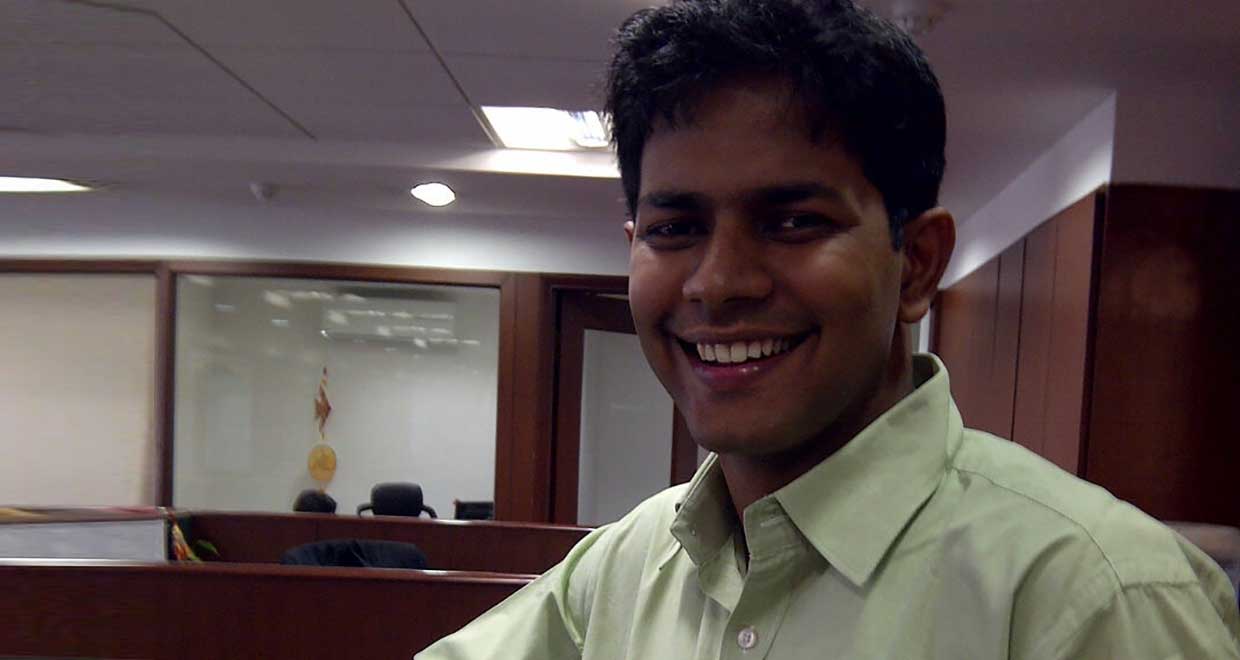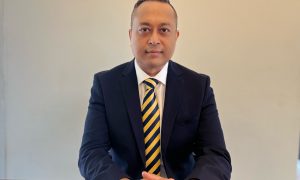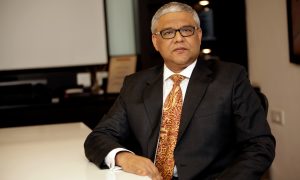Tanmay Amar graduated from the National Law School of India University, Bangalore, in 2006. Immediately after graduation, he joined Luthra & Luthra Law Offices in New Delhi. He spent nearly seven years there, before moving in house with Sequoia Capital India, in Bangalore, where he spent almost three and a half years. And he has been with Omidyar Network as Director – Legal for the last five months.
In this interview we speak to him about:
- His time at NLSIU
- Working at Luthra & Luthra
- His diverse experience
Are you a first generation lawyer?
Technically not, practically yes. My mother qualified as a lawyer, and she did practice for a few years, but had stopped practising well before I was born (soon after the birth of my elder brother – she chose to give up her legal practice), so I never really got to see her as a lawyer, nor did we have any conversations around law/ legal developments.
I did find the Civics classes in school interesting, but what really motivated me to consider applying for law school was Perry Mason. I was fascinated with Perry Mason books, though he didn’t influence me enough to conclusively choose law as a career. Towards the end of my school days, I was still considering multiple careers, but once I got through to NLS, Bangalore, I decided to go for it, given its reputation and standing.
Did you take part in co-curricular activities while at NLSIU?
Yes, I absolutely loved participating in co-curricular activities. I found it quite enjoyable and ended up taking part in almost everything. I mooted, took part in client counselling/ negotiation competitions, quizzed, did dumb charades/ what’s the good word/ Pictionary/ antakshari, debate adjudication, danced (awkwardly) for the class on western and eastern music inter-class group dance events, organized various events, was vice-president of the student body, wrote articles, was on the editorial board of our flagship journal, went for a couple of legal literacy programmes where you educate people on their rights under law, represented the class in a couple of inter-class sports events, was active on the hostel management committee (general welfare committee), conducted orientation for juniors, once even went for a student protest in Bangalore against S. 377, IPC. So, there was very little I didn’t do in terms of co-curricular activities in college. Did well in some, was happy to merely participate in others. I probably spent 80-90% of my time in co-curricular activities and am happy that I did that. I felt like I made the most of the opportunities at college and generally look back with very fond memories.
I would pay attention in most classes, that helped ensure I was doing decently in academics, apart from studying before exams.
Could you tell us about the internships you took up, and what you learnt from those experiences?
Most of my internships were litigation based – I did later wish that I had gone for more diversity. It was generally exciting just going to court, witnessing proceedings up close, particularly in the trial courts. I picked up stuff about court procedures and how things work practically. I can’t say that I picked up a new skillset or that my internships shaped my career in any significant way though.
My most memorable internship was with Mr. Parag Tripathi, a senior advocate in Delhi. He had received a brief for opinion from a company and he asked me to prepare the draft response – this was early on, in my internship. He was very happy with the draft and barely changed a few words here and there, and thereafter gave me a fair bit of research, to help him prepare for his cases. The confidence he reposed in me was gratifying. It felt great being useful in real cases at a young age.
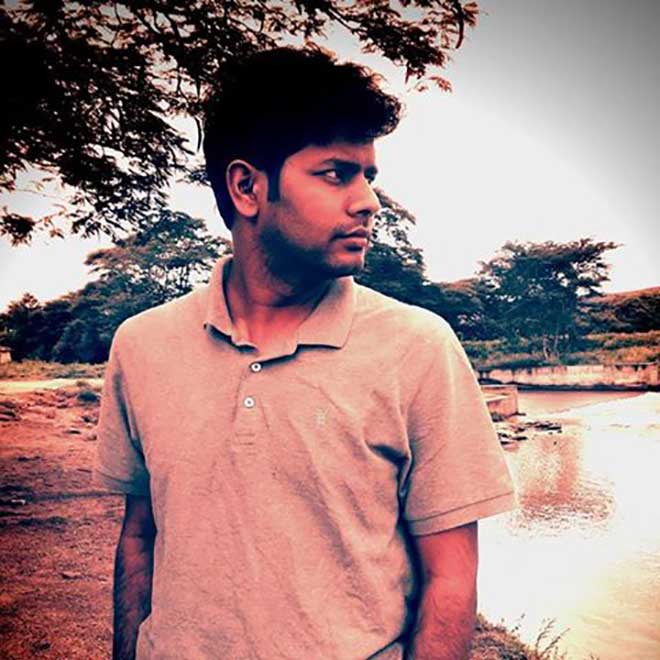
From a law student to a lawyer, how will you describe the transition?
One learns how to find the law in college. However, finding the right answer is not enough anymore once you become a lawyer. You have specific problems to solve, and apply the law to find solutions. You may have done that in moot courts and internships while in college, but not often enough.
Also, most lawyers in their early years are required to put in long hours, so one does tend to miss the free time one had earlier. If you are in a corporate law firm, you do enjoy the money that comes with it. As one of my friends had put it, you go straight from 8 pm to Black Label when you move from college to a law firm.
You are usually required to focus on areas of law, which cater to the requirements of your clients/ organization, which may not match your areas of interest. In college, you could have focused a lot more on areas, which interested you. However, your advice / work actually impacts real world decisions and when you see that happen, it can be immensely satisfying.
How do you keep yourself abreast with the latest legal developments and industry news?
I follow the news, online legal blogs and keep and keep an eye out for notifications from regulators in my area of work. Also, receiving alerts from law firms we engage is helpful. I am afraid I am not able to read as many cases as I would have liked to, but once in a while, I do read original judgements. For industry news, I rely on online editions of financial newspapers and some specific sites catering to the industry or on social media.
Tell us about your early professional experiences at the Luthra & Luthra Law Offices.
When I started, the team I joined had a lot of regulatory advisory work (it later expanded to work on a lot more transactions), so there was a lot to learn, as we do very little work on that in college. My first boss, Mr. Dudeja, was a chartered accountant cum lawyer, and it was an education to see him piece together effective transaction structures while navigating tricky regulatory restrictions. We got thrown into the deep end early, there were client interactions from the first few months onwards. In the first couple of years, there were many long days and some overnighters. However, I had a group of peers – there were some eight to nine of us from our batch, who hung out together at work and beyond. We got along very well and watched each other’s backs and made life easy for each other generally. Was thankful to have that group around me and we still remain close friends. And the firm was still not very large then, so one had easy access to the senior management like Mr. Luthra and Mr. Saraf, who were quite receptive to our suggestions and inputs. It helped me feel like an integral part of the firm and acted as motivation to work hard and do well.
As the Managing Associate at the Luthra & Luthra Law Offices, what were the roles and responsibilities you took up?
There was of course legal advisory work, which one needs to do at any level in a law firm, but with varying levels of involvement. In addition, mentorship was a very important aspect of the role – that involved sharing your perspective and experience with the juniors in your team, the two most critical things a mentor can provide a protégé. Client management was another large part of the role. One also had to do more administration work like reviewing description of billable hours and ensuring invoices were raised on time, and followed up on. At some point of time, one was expected to start business development as well, but I left before I could get to the deep end there.

Having worked there for over six years, what did you enjoy most about the experience?
There was a familial feel to things there, which is hard to replicate. I made a great set of friends there, met some exceptionally smart people and toiled hard. Got to learn a lot – there was plenty to pick up from the seniors there. I still enjoy an excellent relationship with people from Luthra.
What motivated your move to Sequoia Capital?
Professionally, I felt that I needed to do something different after spending more than six years in Luthra. Some of the excitement from the early years had gone and I wanted a change of scene. I had done a fair number of transactions in my latter years in Luthra and had taken a shine to them, but wanted to have more perspective on them from a client’s side. And this opportunity came along, which was very appealing, so I went for it.
On what parameters do you choose the projects you work on?
It is not that easy to choose. You are usually steered by your organization’s needs. It may be possible to choose one of the areas you constantly work on, and develop an interest in that, but your choice may not be too broad. I do envy those who still manage to spend substantial time engaging in projects they have always been passionate about. I do not try to consciously build a specific body of work.

Could your share some of the interesting cases/projects you have worked on and how they have helped build your career as it stands today?
There was a transaction, which I did in my second year at Luthra, which shaped me and my career in a significant way. There was an overseas fund, which was investing in India for the first time and had engaged Luthra. I was on the team with a couple of seniors, but in the week that the client’s team was flying in to Mumbai for negotiations, both seniors ended up being unavailable for pressing personal reasons and I ended up leading the transaction, by default. It was not terribly complex, but there were a couple of unchartered regulatory issues to be addressed, and it was a little scary, considering that I was less than eighteen months into the profession. However, I put my head down and applied my mind and came through in good stead for the client. The general counsel of the fund was very appreciative of my work, and sent a glowing commendation specifically mentioning me to Mr. Luthra at the end of the deal, who forwarded it to the firm. That transaction gave me a lot of confidence and standing within the firm. It also steered me towards more transactional work in the future. The fund invested infrequently in India, but they did request for me to be staffed on the team each time.
What does a typical work day look like for you?
It varies a fair bit. There may an odd term sheet to review some day, on another I may be reviewing transaction documents, sometimes there will be negotiations on the documents, sometimes you meet founders / their team and discuss legal issues they are facing on current/ new projects, sometimes you meet people from the law firms, you generally engage. On a few occasions, you spend time reading up on law, or having calls with counsel in other jurisdictions trying to understand local law and apply to it your proposed investments there. Sometimes there are simple internal issues to deal with – like agreements with new vendors or getting corporate secretarial processes completed.
How do you manage your time between your professional and personal interests?
As long as the work is done, there is a fair amount of flexibility in terms of not being required to be physically present in office, so that helps. I have a toddler, so in the last couple of years, my kid has been the focus of most of my free time, but I do like to read. I spend around half an hour everyday reading myself to sleep and read more, if I get the time, particularly when I am travelling. Apart from reading, I am an avid sports fan. I love cricket, but also follow several other sports, particularly if Indian athletes are playing. I am constantly on cricinfo, when an India match is on, if not in front of the TV. I have recently learnt to swim and am trying to spend more time practising that.
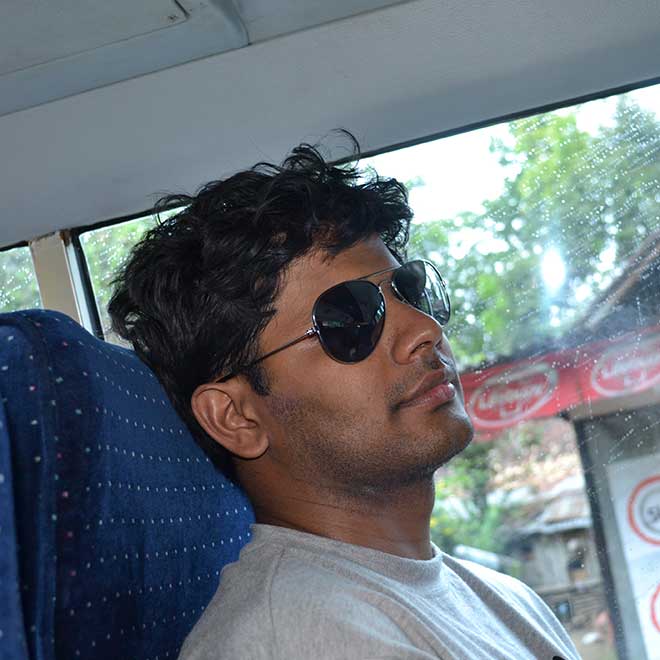
What advice would you like to give our readers who are inclined to developing a proficiency in Corporate Laws?
One needs to understand commercials and business to be able to provide sound legal corporate advice. This may require a fair amount of extra reading, but unless that is done, one won’t understand the rationale behind various business decisions / requirements and one won’t be able to provide effective legal advice. One would be providing academic advice instead of marrying legal solutions to commercial requirements. One may be a great legal researcher, with impeccable analytical skills, but rarely do clients come to you for a simple opinion, they usually come to you to solve their legal problems and you can’t help unless you learn to create legal solutions that match business requirements. It is often a balancing act to find the perfect solution – sometimes you may need to suggest alternations to the business plan to provide an effective legal solution, which you can do only if you understand the business well enough to know what alternates would be acceptable and what not, from a commercial point of view.

